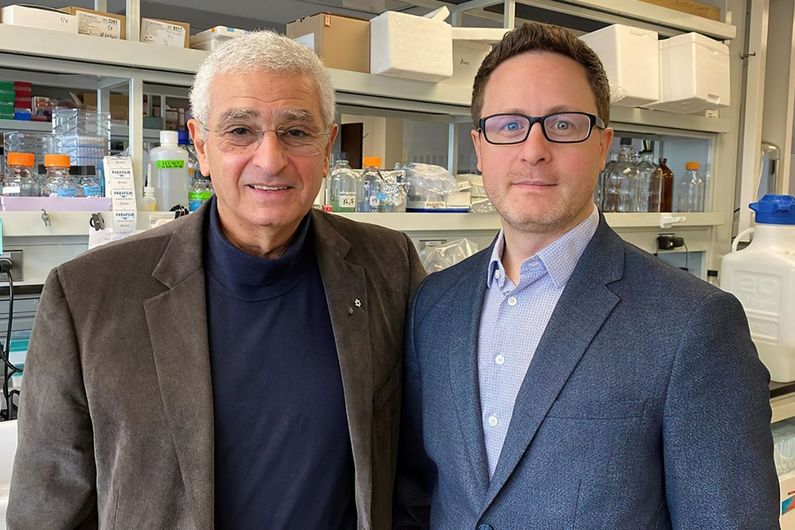New hope for patients with NAFLD
- Salle de presse
12/01/2023
- UdeMNouvelles
Groundbreaking work by IRCM scientists using an RNA-based therapeutic approach gives hope for a future cure for non-alcoholic fatty liver disease (NAFLD).
Non-alcoholic fatty liver disease (NAFLD) is a major health problem affecting approximately 30 percent of people in Western countries and which has been in sharp increase over the last three decades.
Despite several attempts and clinical trials, there are currently no treatments approved for this serious and potentially life-threatening disease. In one in five cases, steatosis leads to cirrhosis, which may require a liver transplant.
In the past, some human genetics studies have linked PCSK7 variants to lipid metabolism.
But now, in groundbreaking research, scientists led by biochemist Nabil G. Seidah of the Montreal Clinical Research Institute (IRCM) have found that the PCSK7 gene produces a chaperone protein PCSK7 that regulates apoB, the main protein of LDL cholesterol particles.
A professor at Université de Montréal’s Faculty of Medicine, Seidah also found that removing PCSK7 leads to a 50-per-cent degradation of apoB and prevents hepatic steatosis. Moreover, it leads to effective recovery of the liver from diet-induced NAFLD (typically manifested as decreased lipids, inflammation, hepatocyte ballooning and fibrosis in the liver).
'Silencing' the PCSK7 protein
For this research, Seidah’s team joined forces with that of his IRCM colleague Martin Sauvageau to develop an RNA-based therapeutic approach to silence PCSK7 using antisense oligonucleotides (ASO) that have galactose (GalNAc) moieties attached to it, and thereby bring the ASO to liver hepatocytes and induce the degradation of PCSK7 mRNA.
Injecting this ASO in mice reversed the diet-induced NAFLD, indicating that this may serve as a promising new target for NAFLD. The researchers already have ASO to target the human PCSK7 gene and are now testing to determine if their effect is recapitulated in human cells and soon in humanized PCSK7 mice, which would then open the door to clinical trials.
The development of this ASO-based therapeutic approach is part of the IRCM's new Sidney-Altman RNA Therapeutic Hub, which aims to develop RNA therapies via design, synthesis, screening and pre-clinical trials to bring the discoveries made in the laboratories of hospitals and research centres closer to use in a clinical setting.
Media contact
-
Florence Meney
IRCM
Tel: 514-987-5500, poste 5535 -
Jeff Heinrich
Université de Montréal
Tel: 514 343-7593













